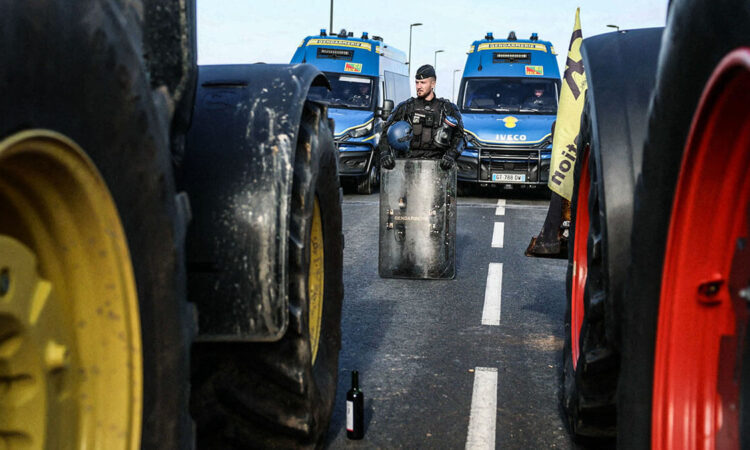
European farmers are increasing their pressure on the European Union. Germany is leading a new wave of protests that is already spreading across much of the Old Continent. The reform of Olaf Scholz’s government, which gradually eliminates tax exemptions on diesel, unleashed a series of demonstrations that, added to the critical situation the sector has been going through since the Russian invasion of Ukraine, has caused farmers to explode.
- Europe’s farmers are at war with EU policies
- Germany stands firm and will not back down on its fuel subsidy cuts
- Ursula von der Leyen says she is open to dialogue with farmers
Germany is the epicentre of the revolts, but the reality is that the measures imposed from Brussels have had a lot to do with the widespread discontent in the agricultural sector. This comes on top of criticism of the delay in the aid promised by the EU to alleviate the effects of the war in Ukraine on farmers.
In France, the situation is not much calmer. Last Monday, hundreds of people announced what they call a “siege of Paris”. They intend to put pressure on the government of Emmaunel Macron and threaten a “dangerous week” between the farmers themselves and the French security forces. They denounce that European policies are “disconnected” from the reality that the agricultural sector is going through and call for a reconsideration of the position of European countries, although this does not seem to be a possibility, at least for the moment.
The German government has been very clear: there is no more money. This is the reason they are clinging to in order to defend a measure that has brought thousands of farmers onto the streets, who claim that this situation will lead to their ruin. In fact, they have already announced that they will demand a price increase of between 5 and 10%, and they warn that they will not stop there, as in the long term they will continue to increase gradually.
The Swiss Farmers’ Union has issued an official statement backing the Germans. “We must act if we want to keep Swiss food on our plates” because, they say, “they are being suffocated by agricultural policy and its complexities”. A view shared by countries such as Poland, Romania, Slovakia, Hungary and Bulgaria.
They all complain of unfair competition from Ukrainian imports, causing cereal prices to fall. In this sense, these countries are awaiting the European Commission’s decision on whether or not to renew the customs exemption for Ukrainian products, which expires next June.
The President of the European Commission says she intends to pursue a strategy of dialogue bringing together farmers, environmental organisations and other agricultural bodies. The intention is to find a middle ground between the increasingly strict restrictions dictated by Brussels and the needs of the sector’s professionals.
However, von der Leyen sets out a number of red lines that cannot be crossed in any case, such as the sustainability aspect. However, she points out that it is possible to find a middle ground that takes into account “farmers’ incomes, technological innovation and competitiveness”.
The idea is to open a dialogue that, by the middle of this year, will have a concrete proposal that can be presented to the Commission. Although this idea was promised by Ursula von der Leyen herself in September last year, it has not yet materialised, one of the reasons behind the demonstrations outside the European Parliament.
They say they are “not asking for much”, just “fair treatment and respect for their social role”. They believe that this wave of protests could have a big effect on the next European elections, so they are ready to keep up the pressure to improve conditions which, if not changed, they say, will lead to their ruin in the short term.






